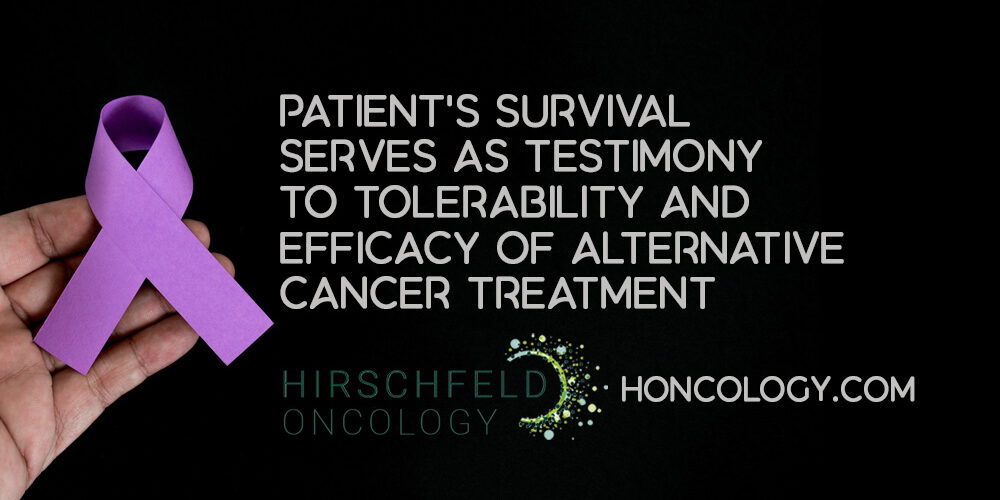Introduction to Personalized Cancer Care
What Is Personalized Cancer Care?
Personalized cancer care, also known as precision medicine, is an approach to cancer treatment that tailors therapies specifically to the genetic and molecular characteristics of an individual's tumor. Unlike traditional treatments that apply broadly, this method uses detailed information about the cancer’s unique genetic profile.
The Importance of Genetic and Molecular Profiling
Advances in genetic testing and molecular profiling technologies, such as next-generation sequencing (NGS), allow doctors to identify specific mutations and alterations in cancer cells. This profiling is crucial because cancers can vary greatly even within the same tumor type, and these differences affect how the tumor grows and responds to treatment.
Tailored Therapies Shaping Oncology
Tailored therapies are treatments designed to target the specific mutations or molecular changes found in a patient's tumor. Examples include targeted drugs that inhibit mutated proteins and immunotherapies that boost the immune system's ability to recognize cancer cells. By focusing on these individualized targets, personalized cancer care aims to improve treatment effectiveness while reducing side effects, enhancing patient quality of life.
Advances in Genomic Technologies Shaping Cancer Treatment

What is the impact of next-generation sequencing (NGS)?
Next-generation sequencing (NGS) has revolutionized cancer treatment by enabling detailed molecular analysis of tumors at an unprecedented scale and speed. This technology allows for comprehensive genetic profiling, identifying mutations and alterations within cancer cells that drive tumor growth. With NGS, clinicians can detect specific genetic changes such as EGFR mutations in lung cancer or BRAF alterations in colorectal cancer, facilitating the selection of effective targeted therapies. The rapid and affordable sequencing capabilities have also made NGS a cornerstone in precision oncology programs worldwide.
How does molecular profiling guide targeted therapies?
Molecular profiling involves analyzing the unique genetic and molecular characteristics of an individual's tumor to inform treatment decisions. It integrates data from DNA and RNA sequencing, protein expression, and epigenetic markers. This approach has allowed for personalized treatments that directly target oncogenic drivers, improving efficacy and minimizing side effects. For example, breast cancers with HER2 amplification respond well to trastuzumab, while colorectal cancers with KRAS wild-type status can benefit from EGFR-targeting antibodies. Molecular profiling thus assists in classifying tumors and matching patients with the most promising therapies.
What role do liquid biopsies play in non-invasive cancer monitoring?
Liquid biopsies are emerging as a non-invasive diagnostic method that detects circulating tumor DNA (ctDNA) or other tumor-derived materials in blood samples. They offer real-time monitoring of tumor dynamics, enabling early detection of resistance mutations and disease recurrence without the need for invasive tissue biopsies. Liquid biopsies support ongoing treatment adaptation by revealing molecular changes during therapy and can facilitate early cancer detection. This technique complements traditional tumor biopsies and enhances personalized medicine by providing a less burdensome way to track patient response and tumor evolution (Molecular tumor profile-based clinical trials, Molecular Tumor Boards).
Immunotherapy and Personalized Vaccines: Expanding Treatment Horizons

What are immune checkpoint inhibitors and their role in cancer treatment?
Immune checkpoint inhibitors (ICIs) are drugs that help the immune system recognize and attack cancer cells by blocking proteins like PD-1, PD-L1, and CTLA-4 that tumors use to evade immune detection. These therapies have significantly improved outcomes in cancers such as melanoma and lung cancer by restoring the immune response, achieving survival benefits not offered by traditional chemotherapy.
How do CAR T-cell therapies work and what are their applications?
CAR T-cell therapy is a personalized immunotherapy where a patient’s T cells are genetically engineered to better identify and destroy cancer cells. This approach has shown remarkable success in blood cancers like leukemia and lymphoma, with ongoing research aiming to extend its use to solid tumors. Safety improvements and off-the-shelf versions are being developed to enhance accessibility and reduce treatment delays.
What is the current progress in developing personalized cancer vaccines?
Personalized cancer vaccines are designed to prime a patient's own immune system to target unique tumor mutations, using technology like messenger RNA (mRNA). Companies are advancing these vaccines towards clinical trials, aiming to reduce recurrence and side effects compared to standard treatments. The vaccines leverage neoantigens, tumor-specific proteins created by mutations, stimulating durable immune responses tailored to each patient's cancer.
Together, these immunotherapies and vaccines represent promising frontiers, broadening personalized cancer treatment options focused on harnessing and directing the immune system against tumors. They also contribute to the expanding field of cancer immunotherapy, which includes strategies like immune checkpoint inhibitors, adoptive cell transfer, and tumor neoantigens and personalized vaccines.
Challenges in Implementing Personalized Cancer Medicine
Tumor heterogeneity and drug resistance
One of the most significant challenges in personalized cancer medicine (PCM) is tumor heterogeneity challenges. Each tumor can exhibit diverse genetic profiles within its cells, leading to variations in treatment response. This complexity fuels drug resistance in cancer treatment, where cancer cells adapt or evade therapies, diminishing long-term effectiveness. Overcoming these hurdles requires continuous monitoring and adaptive treatment strategies.
Accessibility and cost barriers
While genomic sequencing costs have decreased significantly, the expense of targeted therapies and comprehensive molecular testing remains high. Many patients, especially in low-resource settings, face limited access to PCM due to financial constraints, reimbursement challenges, and unequal healthcare infrastructures. These barriers restrict the equitable delivery of personalized treatments.
Complexity in genomic data interpretation
Interpreting vast genomic data is an intricate task for clinicians. The rapid pace of discoveries generates extensive datasets requiring specialized knowledge and computational tools, including artificial intelligence in cancer diagnosis, to translate into actionable clinical decisions. This complexity demands multidisciplinary teams and the role of Molecular Tumor Boards to guide optimal treatment planning.
Regulatory and reimbursement issues
Regulatory approvals for PCM drugs and associated diagnostic tests can delay access to innovations. Additionally, reimbursement policies are often inconsistent across regions, complicating patient access to personalized therapies. Efficient pathways for biomarker testing and therapy approval are vital to broaden PCM availability, as detailed in the targeted therapies approval process and FDA-approved Biomarker Tests.
Ethical and social considerations
Ethical challenges, such as data privacy in cancer research, informed consent, and ensuring equitable treatment access, are fundamental concerns. Addressing disparities in genomic testing availability and preventing genetic discrimination are critical for socially responsible implementation of personalized cancer care, as discussed in ethical considerations in PCM and social issues in cancer genomics.
The Role of Artificial Intelligence and Molecular Tumor Boards
How is AI used in data analysis and treatment prediction in personalized oncology?
Artificial intelligence (AI) plays a pivotal role in personalized cancer medicine by analyzing vast genomic, proteomic, and clinical datasets. It helps discover new therapeutic targets, interpret complex mutation profiles, and predict patient responses to treatments. AI models improve early cancer detection by enhancing imaging analysis and biomarker identification. Furthermore, AI supports treatment planning by integrating multiple data sources to recommend personalized therapies and optimize dosing regimens, reducing adverse effects and improving efficacy (Artificial intelligence in cancer diagnosis, new breakthroughs in cancer treatment, AI and sequencing in cancer research, AI in cancer treatment decision support).
What role do molecular tumor boards play in personalized cancer care?
Molecular Tumor Boards (MTBs) are multidisciplinary teams consisting of oncologists, geneticists, pathologists, bioinformaticians, and other specialists. They interpret genetic and molecular profiling data to make informed, tailored treatment decisions for individual patients. MTBs bridge the gap between complex genomic data and clinical application, ensuring therapies align with tumor biology and patient characteristics. Their collaborative approach improves matching patients to targeted drugs and combination therapies, leading to better survival outcomes (Molecular Tumor Board at Moores Cancer Center, Molecular Tumor Boards role, Multidisciplinary molecular tumor boards.
What are clinical decision support systems and their impact?
Clinical decision support systems (CDSS) leverage AI and machine learning algorithms to assist clinicians in managing and interpreting complex tumor and patient data. CDSS facilitate precision oncology by providing evidence-based treatment recommendations, predicting drug interactions, and optimizing treatment sequencing. They help overcome challenges of rapid scientific advances and data volume, enhancing clinical workflow and decision-making accuracy (precision medicine tools, Clinical practice improvements in cancer treatment).
Together, AI technologies, molecular tumor boards, and decision support systems create a robust framework for delivering personalized cancer treatments that improve patient outcomes and quality of care.
Innovative Therapeutic Modalities Driving Personalized Care
Small Molecule Targeted Drugs
Small molecule inhibitors are designed to specifically block cancer-related proteins such as KRAS, EGFR, and P53. Employing advances like AI and cryo-electron microscopy, researchers develop compounds that can target previously "undruggable" proteins, enhancing precision in cancer therapy while minimizing damage to healthy cells.
Antibody-Drug Conjugates (ADCs)
Antibody-drug conjugates combine monoclonal antibodies with potent cytotoxic agents to deliver drugs directly into cancer cells. With 15 FDA-approved ADCs targeting proteins like HER2, these agents improve specificity, reduce side effects, and effectively combat tumors resistant to traditional therapies. For details on FDA-approved antibody-drug conjugates and mechanisms.
Cell Therapies Including CAR-T and CAR-NK
Cell therapies involve modifying immune cells to recognize and attack cancer. CAR-T therapies are FDA-approved for some blood cancers, while newer approaches like CAR-NK cells show promising safety profiles. Efforts focus on expanding these treatments to solid tumors and developing off-the-shelf options to reduce manufacturing times. For insights on CAR-T, CAR-NK, and emerging cell therapies and advances in cell therapies and safety.
Gene Therapies and CRISPR Applications
Gene therapy uses tools like mRNA vaccines and gene editing technologies such as CRISPR/Cas9 to modify tumor or immune cells. These methods enable direct correction or elimination of genetic mutations and enhance immune system targeting, fostering personalized and potentially curative cancer treatments. For further reading on gene therapies, mRNA vaccines, and CRISPR in cancer and CRISPR/Cas9 and cancer treatment advances.
Nanomedicine and Drug Delivery Systems
Nanomedicines, including liposomes and polymeric nanoparticles, improve drug stability, targeting, and controlled release. They offer enhanced tumor penetration and reduced systemic toxicity, although manufacturing and safety challenges remain. Advances here complement precision therapies by optimizing delivery of active agents. See nanomedicines and tumor drug delivery strategies and optimizing targeted drug delivery in cancer.
Together, these modalities signify a shift toward highly tailored, effective cancer treatments that leverage molecular insights and innovative technologies to improve patient outcomes. For comprehensive perspectives on such precision medicine advancements in oncology.
Patient-Centered Approaches and the Importance of Multidisciplinary Collaboration
How does patient engagement and education enhance personalized cancer treatment?
Patient engagement is essential in personalized cancer medicine because it empowers individuals to understand their unique cancer profiles and treatment options. Educating patients about their genetic and molecular diagnoses helps improve therapy adherence and enables informed decisions, enhancing care quality and outcomes. Personalized medicine focuses on improving patients’ quality of life by tailoring treatments that minimize side effects, thus emphasizing the need for transparent communication and continuous patient support (Precision medicine benefits, patient engagement in personalized medicine.
Why is interdisciplinary collaboration crucial for effective personalized cancer care?
Team science, or multidisciplinary collaboration, is fundamental to translate complex molecular data into clinical practice. Specialized teams including oncologists, geneticists, pathologists, bioinformaticians, radiologists, and pharmacologists come together to review patient cases. Molecular Tumor Boards exemplify this integrated approach, where diverse expertise guides treatment decisions, ensuring therapies align closely with a patient’s tumor biology and lifestyle factors (Interdisciplinary collaboration in cancer research, Molecular tumor profile-based clinical trials).
How are lifestyle and environmental factors integrated into personalized cancer care?
Personalized cancer treatment considers genetic variability alongside lifestyle and environmental contributors such as diet, physical activity, and exposure to carcinogens. Understanding these factors helps customize prevention strategies, treatment choices, and supportive care to enhance efficacy (Lifestyle and morbidities in cancer treatment). Incorporating this holistic view allows for precision oncology not only to target tumors biologically but also to address patient-specific contexts that impact disease progression and treatment response.
This patient-centered, multidisciplinary approach drives the future of cancer care, emphasizing comprehensive understanding and personalized strategies that foster better outcomes and improved patient experiences (Future prospects in cancer treatment, Artificial intelligence in cancer diagnosis.
Economic and Healthcare System Challenges
What are the costs associated with molecular testing and targeted therapies?
Molecular testing, including genomic sequencing, has become more affordable, with costs often below $5,000. However, the overall expense of personalized cancer treatment is driven largely by the high prices of targeted therapies and immunotherapies. Some combination immunotherapy regimens can cost up to $1 million per patient annually, posing significant barriers (Precision Medicine is the Future of Cancer Care but Cost Remains a Major Barrier, Costs of Immunotherapy Treatments and Financial Toxicity).
How does healthcare infrastructure and reimbursement affect personalized cancer care?
Healthcare systems vary significantly in their capacity to deliver personalized medicine. Challenges include the need for advanced infrastructure to perform reliable molecular testing, timely result reporting, and the integration of decision-support tools. Reimbursement policies commonly lag behind scientific advances, limiting patient access to necessary tests and tailored treatments (Business Challenges in Precision Medicine, A New Challenge for Personalized Cancer Care: The Information Explosion, Infrastructure for PCM Implementation.
Are there disparities in access to personalized treatments?
Yes. Many patients, especially in developing countries or underserved regions, face inequitable access due to high costs, lack of specialist training, and healthcare system inefficiencies. Studies indicate that approximately 64% of eligible advanced non-small cell lung cancer patients do not receive precision oncology therapies, highlighting gaps in delivery (Top Oncology Innovations That Shaped the First Half of 2025, Challenges in Personalized Cancer Care, Equitable Access to Personalized Treatments.
What strategies exist to improve affordability and accessibility?
Efforts focus on standardizing biomarker testing protocols, expanding insurance coverage, and fostering collaborations between industry, academia, and healthcare providers. Innovations such as AI-supported clinical decision systems and streamlined Molecular Tumor Boards help optimize resource use. Policy reforms aimed at equitable reimbursement and patient support mechanisms are critical to widen access (Clinical Practice Improvements in Cancer Treatment, Awareness and Training in Biomarker Strategies).
| Challenge | Impact | Approach to Address |
|---|---|---|
| High treatment costs | Limits patient affordability and healthcare budgets | Develop biomarker-driven patient selection; advocate pricing reforms (Cost Challenges |
| Infrastructure variability | Delays and variability in test results | Invest in molecular diagnostic labs and workforce training (Infrastructure for PCM Implementation |
| Reimbursement gaps | Hinders testing and access to therapies | Engage payers and policymakers for coverage expansion (Policy Reforms for Precision Oncology) |
| Healthcare inequalities | Unequal access across regions and populations | Promote equitable healthcare policies and patient education (Equitable Access to Personalized Treatments |
| Awareness and expertise deficits | Poor adoption due to lack of knowledge | Enhance training programs for clinicians and support teams (Awareness and Training in Biomarker Strategies |
Financial investment, combined with technological and organizational innovations, is vital to overcoming economic barriers and making personalized cancer care accessible to more patients worldwide (What Does the Future Hold for Cancer Patients?, Future of Precision Cancer Care).
Future Perspectives: Expanding the Reach of Personalized Cancer Care
Integration of Multi-Omics and Microbiome Analysis
Personalized cancer care is moving towards a comprehensive approach that integrates multi-omics data — including genomics, transcriptomics, proteomics, and epigenomics — with microbiome analysis. This allows for a more detailed understanding of tumor biology and patient-specific factors. The microbiome’s impact on cancer progression and treatment response, especially immunotherapy, is increasingly recognized, prompting research into microbiota-targeted therapies to enhance efficacy.
Advancement of Liquid Biopsies and Early Detection
Liquid biopsies in cancer monitoring, which analyze circulating tumor DNA (ctDNA) from blood samples, are emerging as minimally invasive tools for early cancer detection and real-time monitoring of treatment response. These methods offer promise for earlier diagnosis, which is crucial since most cancers are diagnosed at metastatic stages. Blood-based tests capable of detecting multiple early-stage cancers with high accuracy are entering clinical trials and may become routine screening tools.
Development of Predictive Biomarkers
The identification and validation of predictive biomarkers remain central to personalizing cancer therapies. Biomarkers guide treatment selection, monitor disease progression, and predict responses to targeted therapies and immunotherapies. Efforts are underway to refine biomarker panels using multi-omic data and artificial intelligence in cancer diagnosis to improve accuracy and to expand their use across more cancer types.
Potential of AI-Driven Research and Personalized Vaccines
Artificial intelligence (AI) is transforming cancer research by analyzing vast genomic and clinical datasets to identify novel therapeutic targets, predict treatment outcomes, and support clinical decision-making. AI-driven platforms accelerate drug discovery and enhance biomarker detection. Meanwhile, personalized cancer vaccines, often based on neoantigen identification from tumor sequencing, are advancing in clinical trials, aiming to activate tailored immune responses against individual tumors.
Ongoing Clinical Trials and Research Directions
Current clinical research explores the combined use of multi-modal approaches, including emerging therapeutic modalities in cancer treatment, immunotherapies, and emerging personalized vaccines. Trials are increasingly designed around Molecular tumor profile-based clinical trials rather than cancer location, embracing precision oncology principles. The focus is also on overcoming challenges like intra-tumoral heterogeneity and drug resistance, with innovative therapies such as CAR-T-cell treatments being adapted for solid tumors. These efforts aim to broaden the reach and effectiveness of personalized cancer care worldwide.
Conclusion: Towards a New Era of Personalized Cancer Care
Challenges and Solutions in Personalized Cancer Care
Personalized cancer care faces notable challenges such as tumor heterogeneity, drug resistance, ethical concerns, and disparities in access to advanced diagnostics and therapies. Operational barriers include insufficient biomarker testing, cost of treatments, and the complexity of interpreting vast genomic data. Solutions involve enhancing infrastructure, expanding molecular tumor boards, employing artificial intelligence for data integration, and adopting standardized protocols to improve treatment matching and patient outcomes.
The Promise of Personalized Medicine
Tailoring cancer treatment to the genetic and molecular profile of each patient’s tumor holds promise to significantly improve therapeutic precision and reduce side effects. Advances in technologies like next-generation sequencing, liquid biopsies, and targeted therapies have enabled more effective interventions that extend survival and enhance quality of life. Immunotherapies and novel approaches such as personalized cancer vaccines further expand the arsenal against cancer.
Importance of Multidisciplinary and Compassionate Care
A successful personalized cancer care model relies on multidisciplinary collaboration among oncologists, geneticists, pathologists, and data scientists. Equally essential is compassionate patient-centered care that educates and supports individuals throughout their treatment journey. Integration of comprehensive clinical expertise with cutting-edge science ensures that personalized strategies translate into meaningful health benefits for patients globally.





.png)


.png)
.png)




